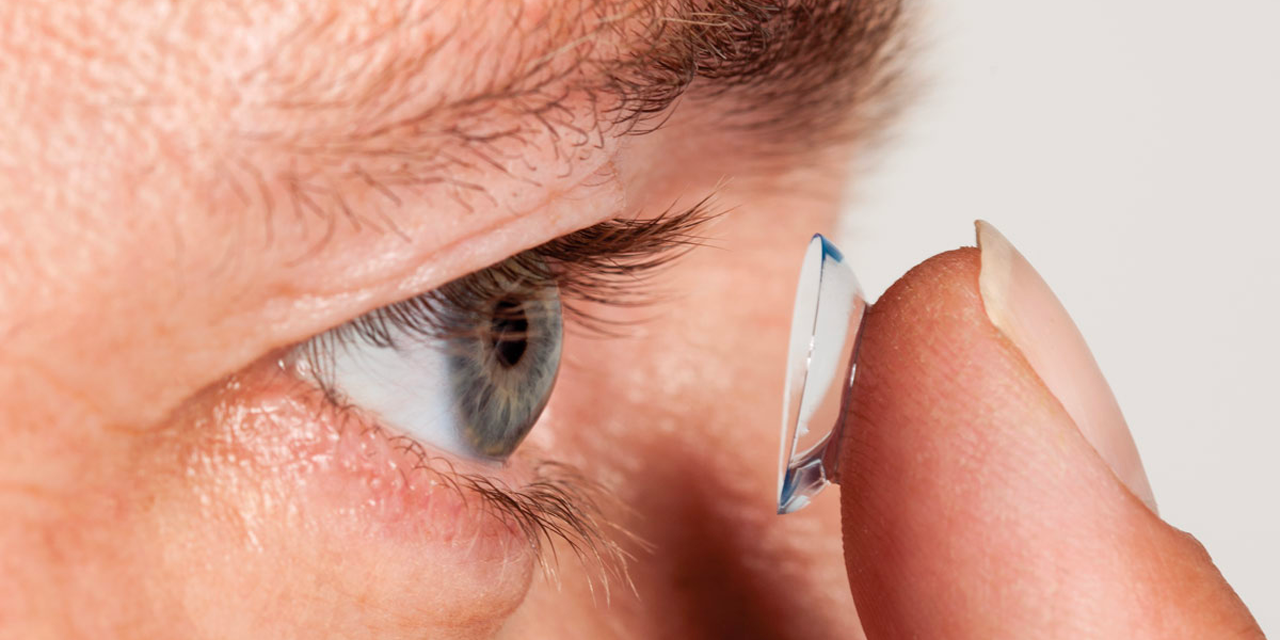Contact lenses
Daily lenses, rigid contact lenses, soft contact lenses, night lenses, multifocal contact lenses. With so many options available, it can be easy to lose sight of the forest for the trees.
It's important that you always choose the best lenses for your eyes. At Oogwereld, highly trained and expert contact lens specialists offer help and advice in making the right choice. Thanks to the professional care of top-notch independent opticians like Oogwereld, the Netherlands has become a leading contact lens country.
Better materials are constantly being developed to ensure optimal oxygen supply to the eye during wear. This is essential for keeping eyes healthy.
For the same reason, it's crucial that contact lens wearers have their eyes checked regularly by their eye care professional. Thanks to recent developments, almost everyone who wants to, young or old, can now wear contact lenses. If you'd like to be sure or would like more information, feel free to schedule a no-obligation appointment with one of our contact lens specialists. Soft lenses require almost no adjustment. They're immediately very comfortable. Some vision problems, however, can't be corrected very well, but if they can, you can choose soft or rigid lenses together with our contact lens specialist.
Soft lenses are generally slightly larger than rigid lenses and move slightly less on the eye. This also prevents dust from getting underneath, which sometimes happens with rigid lenses.
This is one of the reasons why soft lenses are ideal for sports. Even contact sports can be worn without any problems.
The Benefits of Soft Contact Lenses: Comfort, Health, and Sportiness
Better materials are constantly being developed to ensure optimal oxygen supply to the eye during wear. This is essential for keeping eyes healthy.
For the same reason, it's crucial that contact lens wearers have their eyes checked regularly by their eye care professional. Thanks to recent developments, almost everyone who wants to, young or old, can now wear contact lenses. If you'd like to be sure or would like more information, feel free to schedule a no-obligation appointment with one of our contact lens specialists. Soft lenses require almost no adjustment. They're immediately very comfortable. Some vision problems, however, can't be corrected very well, but if they can, you can choose soft or rigid lenses together with our contact lens specialist.
Soft lenses are generally slightly larger than rigid lenses and move slightly less on the eye. This also prevents dust from getting underneath, which sometimes happens with rigid lenses.
This is one of the reasons why soft lenses are ideal for sports. Even contact sports can be worn without any problems.

Multifocal soft lenses, the solution for near and far vision
If you're over 40, you might experience difficulty seeing up close. Watching TV or browsing the newspaper can make your eyes feel tired. Multifocal soft contact lenses are the perfect solution. They create a continuously variable multifocal zone with extreme precision, giving the lens multiple prescriptions. Whether you're in the car or at your computer, you'll see clearly at any distance.
Toric lenses can perfectly correct astigmatism
Not all eyes are perfectly round. Sometimes they have a deviation shaped like a rugby ball instead of a soccer ball. This means the curvature of the eye is not the same, and the image is not focused precisely on your retina. This phenomenon is called astigmatism. Nowadays, such an eye defect can be easily corrected with cylindrical or toric lenses. After our contact lens specialist has performed several tests, so-called rigid toric contact lenses are made specifically for your eyes, combining two prescriptions. This gives you a sharper image on your retina. Regular rigid lenses have the advantage of automatically correcting a small degree of astigmatism. In that case, you don't need special toric lenses.
Oogwereld keeps a close eye on developments in the field of contact lenses.
There is a clear difference between toric rigid and toric soft lenses.
Toric soft lenses have a thickening (or another type of stabilization) that should keep the lens stable on the eye. However, if the toric soft lens rotates, the sharpness decreases. Toric rigid lenses, on the other hand, have two different curvatures. This stabilizes them directly on the eye and is less dependent on lens rotation. With toric rigid lenses, you always maintain sharp vision. An eye examination by our contact lens specialist will determine whether your eyes require (which type of) toric lenses.



